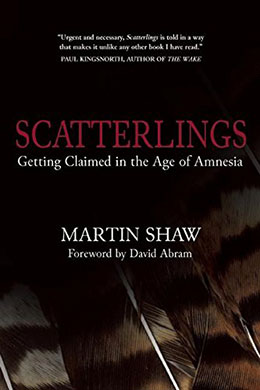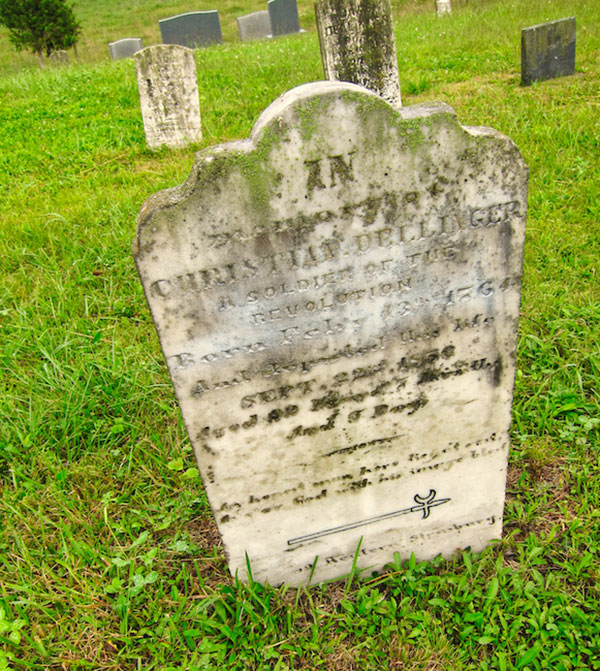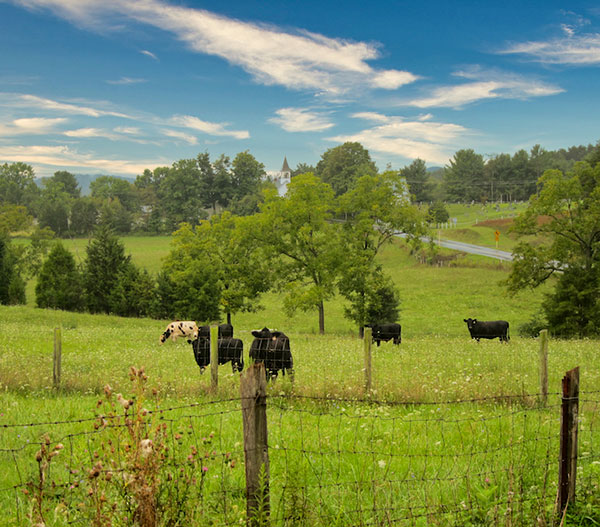The business of stories is not enchantment.
The business of stories is not escape.
The business of stories is waking up.
—Martin Shaw
Each morning, when I can, I walk two and a half miles. I walk for exercise because I write most of the day. But mainly I walk to listen for stories. I hear them in the cheer, cheer of the cardinal and the fierce, splintering cry of the red-shouldered hawk. I crouch to hear the soft drag of a slug’s journey over concrete. The very air carries stories in the wingbeats of the owl I heard the night before and the breath of a bear on a distant Blue Ridge mountaintop.
Stories shape our small, everyday lives and make us aware that we are part of a larger story. Mary Oliver captures it much better: “It’s the relationship of my own mind to landscape, to the physical world — especially to the part of which over the years I have become intimate. It’s no great piece of furniture in the universe — no Niagara, or rainforest, or Sahara.”
 In his book Scatterlings, tale-teller and mythologist Martin Shaw touches on the clamor for a story to fix our broken world:
In his book Scatterlings, tale-teller and mythologist Martin Shaw touches on the clamor for a story to fix our broken world:
We hear it everywhere these days: time for a new story — some enthusiastic sweep of narrative that becomes, overnight, the myth of our times. A container for all this ecological trouble, this peak-oil business, this malaise of numbness that seems to shroud even the most privileged … I suggest the stories we need turned up, right on time, about five thousand years ago.
Those old tales, Shaw adds, “are not wiggled from the penned agenda of one brain-rattled individual but have passed through the breath of countless number of oral storytellers. What’s more, those stories — told in caves, around bonfires, and, in my case, at the kitchen table — are stamped with place.
Each afternoon in elementary school, I did my homework at the kitchen table. My mother, still in her white cafeteria uniform, would start supper. Swinging my legs as I dawdled over arithmetic, I’d ask Mama to tell me about the long-ago days. She was never too tired, even after cooking for 300 kids (in the sixties, lunches were cooked, none of this microwave-and-serve stuff), to tell me about her childhood in the Shenandoah Valley.
The time was the early 1920s and the place was Shenandoah County where everyone had a farm and often a business in their home: blacksmithing, barbering, laying out and burying the dead, as my grandfather did. I loved hearing how my six-year-old mother shut her cousin Happy in a casket, then skipped off to play (Happy was okay, but probably scarred for life). I loved hearing about the six pies Mama helped bake every morning — her uncle ate an entire pie with breakfast, lunch, and supper. I loved hearing about the tiny horseshoe the blacksmith forged just for her.
I first saw the fabled Valley when we attended the funerals of my mother’s aunts and uncles. Mountains surrounded rolling farmland; communities bounded by country churches. Preachers told stories about the recently deceased, gravestones told an older story. It was in the Conicville cemetery — not even a footstool in the universe — that I realized, like a flare of heat lightning, that I was born in the wrong time, the wrong place. I belonged here, fifty years ago. I was ten and felt the breath of my ancestors on the back of my neck.

“Relationship,” says Sylvia Lindsteadt, writer and animal tracker, “starts with longing … to follow the gleaming of what delights you, not just in your mind but in your body.” I remember lying down in that cemetery, my body pressed to the ground, the earth pulsing beneath me, the sky spinning above me. I wanted to be recognized by the grass, the ants, the swallows.
I carried this knowledge inside me, not even telling my mother who I believed was too ordinary to understand. She cooked and gardened and made our clothes, once sewing a pale yellow satin ball gown for my old stuffed elephant, Ellsworth. It wasn’t until I was grown and failed gravy that I grasped how Mama’s meals appeared like magic and her needle wove secrets in every stitch. Too soon, she was gone and so were her stories.
To write Scatterlings, a collection of tales from his native Devon, Martin Shaw walked every day for four years in a ten-mile loop from Dartmoor, where he was from, but mainly of. “To be of a place,” Shaw says, “means to listen … to trade endless possibility for something specific. It means staying when you don’t feel like it … To be of a place, to labor under a related indebtedness to a stretch of earth that you have not claimed but which has claimed you.”
I was claimed by Conicville. It was there the stories I’d listened to came alive. I saw the Homeplace, found the barn where my grandfather had built caskets, put my palm against the gravestone of an ancestor who fought in the Revolutionary War, armed only with a pike made by the blacksmith. Ordinary people walked that stretch of land, mapless: staying, listening, telling. Martin Shaw says, “The stories are here, but are we?”
I am. I’ve apprenticed myself to that place. I go when I’m Walmart-weary, when I miss the hiss of summer rain on the blacktop, when tasseled corn rustles a fall-is-coming breeze. I go to listen, to hear my mother’s voice again, and those voices I never knew.
Meanwhile, I walk the land that’s in front of me, stepping around that stag beetle who is trying to tell his own story.


What a beautiful essay. Thank you, Candice.
Thank you, Rebecca, for reading it.
Lovely. Thank you, Candice!
Cynthia, thanks so much for reading this. I love and hate having the final column for Bookology.
Thank you. <3
Caroline, I’m such a fan! Thanks for reading!
I am going to print this out and mail it to my young (age 50+) friend in Georgia… she is a children’s book enthusiast, as I am…
Is there NO ONE who will pick up Bookology and run with it???? I am too old (90) to do this kind of thing any more…
Norma, I’m as heartbroken as you are! I’m a few years younger than you and while I’d be happy to write my column and a new column and more, it’s the coding that takes the time and the know-how, or so Melanie Hill explained to me (I had hoped Melanie and other columnists could keep Bookology going).
Lovely essay, Candice, about the stretches of earth that have claimed you! Makes me treasure and long for the ones that have claimed me.
It is hard leaving the place that shaped you. I hope that your new places will claim you in different ways, my Minnesota-Montana-Arizona friend!
Thank you for waking us up and inspiring us to take our daily walks … and listen.
Charles, I don’t walk anyplace fabulous – two subdivisions in Virginia. But there is ALWAYS something new to see and hear and experience – you just have to look … and listen for the quiet stories.
Candace ~ Your beautifully observed column had me nodding “yes, yes” at each creature, each description. I have always loved trying the weirdest thing on a menu and a different place to travel. But, like you, when I discovered a hiking trail near my home many years ago, I found hiking the same trail every week to be a completely new experience. Every day I hike it, a new layer of “my” trail reveals itself. Each season is different from the last time I hiked it in that season. I am beyond bereft about the loss of Bookology for our community. And though I will point my students to the… Read more »